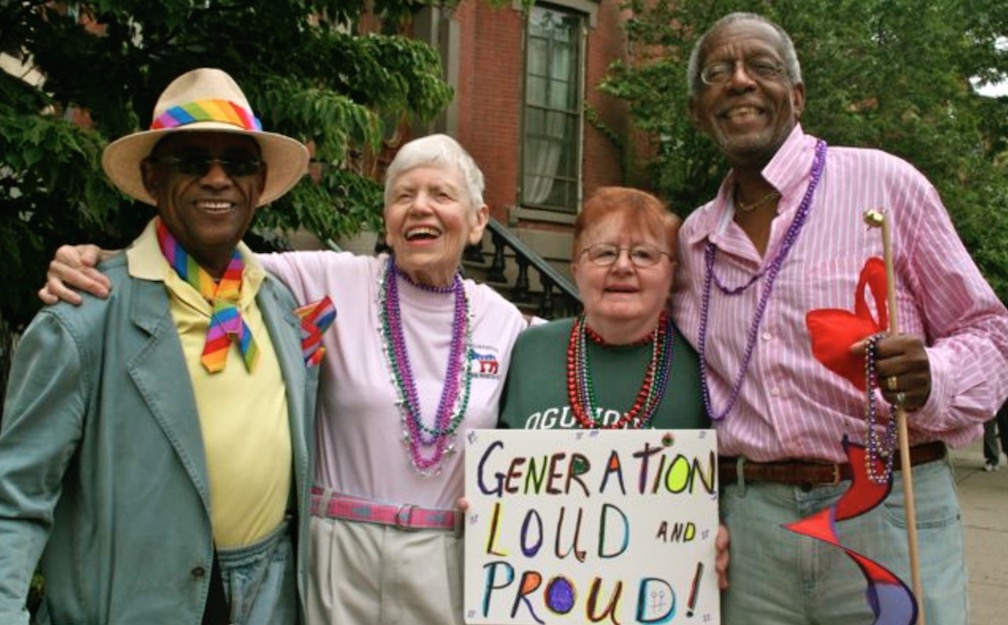“Some LGBTQIA+ older adults are facing the COVID-19 safer at home protocols like many of us, through a multitude of Zoom engagements and much more TV than ever before,” said Lisa Krinsky, LICSW, Director of the LGBT Aging Project at Fenway Health. “However, others who are at risk in multiple ways – by virtue of pre-existing health conditions, age and living alone, as most LGBTQIA+ older adults do – are predicting that they won’t feel safe enough to leave their homes at all until a vaccine is available, and that may be up to a year from now.”
LGBTQIA+ seniors are more likely to live alone than other older adults, and are also more likely to be estranged from their family and have no adult children to care for them. For many, their community has become a chosen family. The LGBT Aging Project has found a way to rally that community in a new project to support LGBTQIA+ older adults during this pandemic. Each week, volunteers from all walks of life call dozens of seniors from the LGBT Aging Project’s massive database of folks who have attended events, congregate meal sites, workshops, support groups, and the many other services the Aging Project offers. Callers offer help with immediate needs like grocery store runs, prescription pickups, and dropping off face masks. Even more importantly, these calls provide seniors with a much needed human connection.
“People have reached out to us to see how they can help, and since we are in a time when it isn’t safe for in-person contact, typical volunteering opportunities won’t work,” explained Bob Linscott, Assistant Director of the LGBT Aging Project. “These calls are a both a practical means to check in with our older adults and see if they have any urgent needs, and they offer a kind voice to let our homebound folks know they are not forgotten.”
To date, these volunteer callers have reached out to roughly 400 older adults across Massachusetts.
“This is so helpful right now because many of these folks have not left their homes since March 17,” Linscott added. “I was speaking with a transgender elder a month ago who was having a difficult time with this isolation. At the end of the call, as we were saying good-bye, she said ‘Wait, I wanted to say one more thing. This call has turned a really bad day into a really good one. Thank you!'”
The LGBT Aging Project is also offering a weekly Zoom drop in time for LGBTQIA+ older adults to socialize as a community, as well as to ask any questions they may have about the resources available during COVOD-19.
“Some of those we reach are willing to learn how to use Zoom, and others are remaining dependent on telephone calls to stay connected,” Krinsky said. “If you know an LGBTQIA+ older adult in your own neighborhood or community, consider reaching out. Drop a friendly note in their mailbox telling them you’re trying to be more connected to your neighbors and ask them how they’re managing during this pandemic.”
Anyone interested in supporting LGBTQIA+ older adults is welcome to contact the LGBT Aging Project to volunteer as a caller, or to learn more about the Zoom drop-in and other virtual community spaces that are available.
“It is such a simple thing to do, to pick up the phone and call someone, yet it can have a profound effect by reminding folks that we are all in this together,” said Linscott. “I also think many new friendships are being formed through these calls. I am sure that these connections will be in place for the day when we can all be together again in person!”


